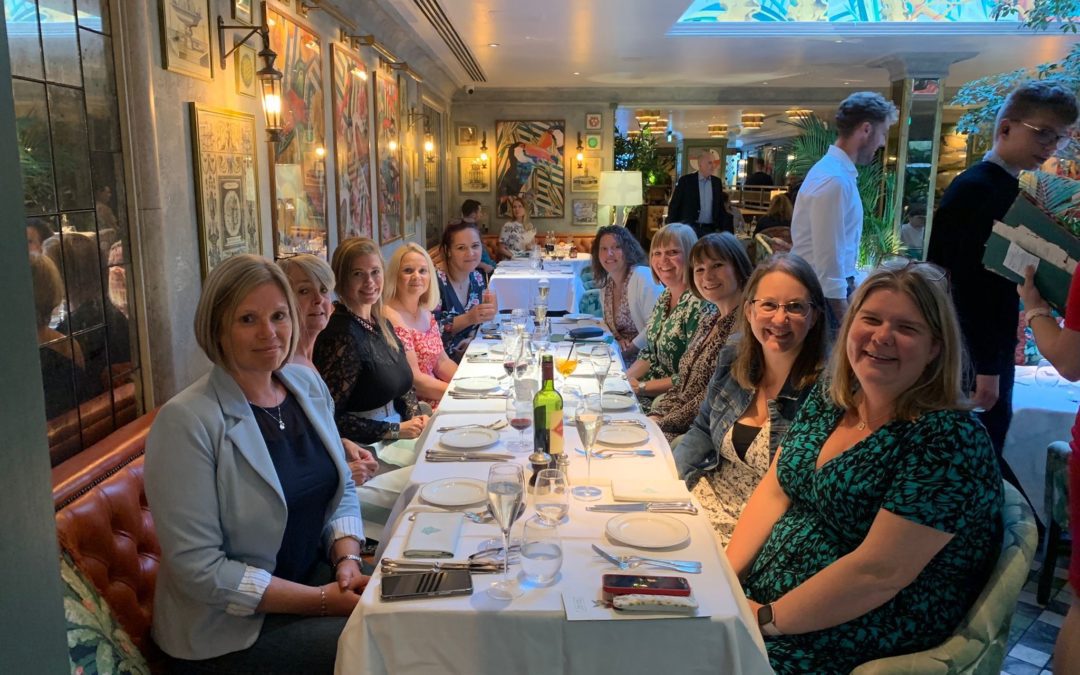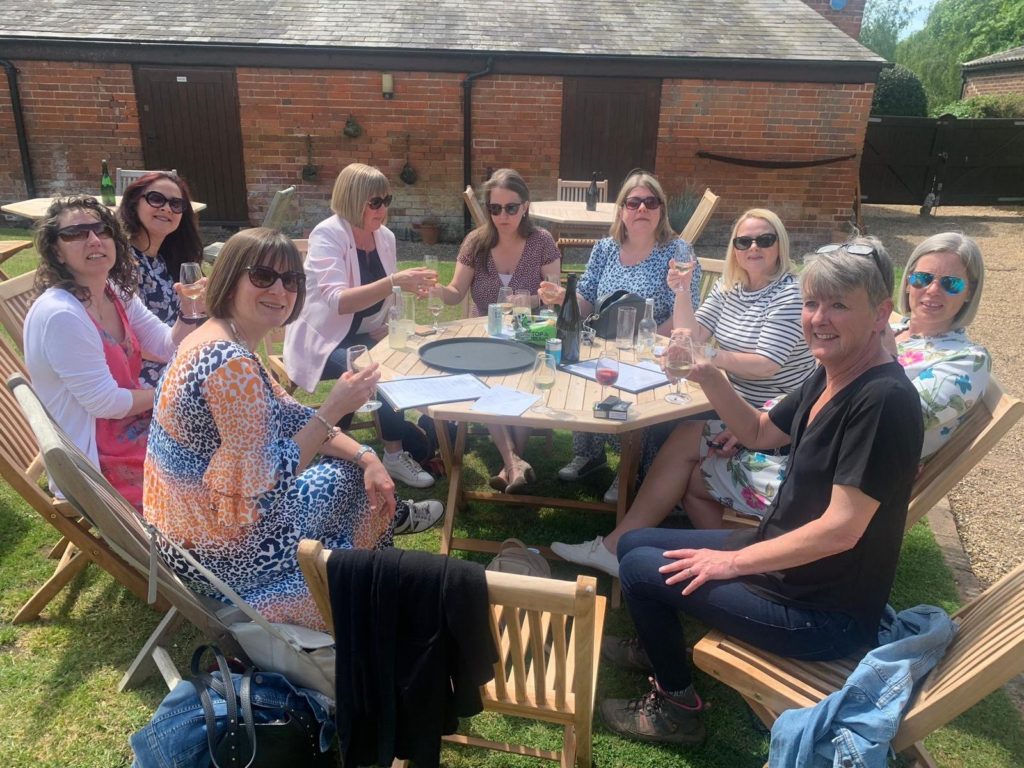A study carried out by Oxford University in 2019 found that workers are 13% more productive when they’re happy. If that was the case in 2019 before remote and flexible working had become so normalised, you can only imagine how much importance we must place on employee happiness now.
There are many important things that contribute to a happy and productive team – purpose, development opportunities, good communication and collaboration, flexibility. Here’s some helpful tips on how to increase team (and owner!) productivity. Along with these things, we’ve found socialising goes a long way to feeling happier, healthier and more productive as a team.
We’re very intentional about socialising as a team, and I want to share with you what we’ve learned, and are still learning, from spending personal time together.
Connection is a basic human need (even at work)
In the Starfish team we acknowledge that work isn’t everything. We have families, friends, pets, hobbies and responsibilities to share our attention with alongside our daily to-dos. We offer flexible hybrid working for exactly that reason.
We also acknowledge that we spend a large part of our lives with our teams, and connection is just as important in the workplace as it is outside of it. We know that connection has an immense effect on our mental health and wellness. Some of us make our strongest and most long lasting friendships at work.
Sadly, I’m sure many of you can think of a time when you felt disconnected in the workplace and can recall the impact it had on your life and career. When work is up to 8 hours of a person’s day, 5 days of their week, it’s damaging to the individual and the company as a whole if they spend their time feeling isolated, distracted and demotivated.
As business owners and leaders we can’t dictate who befriends who at work, but it is our responsibility to nurture connection within the team. We have the power and opportunity to build fun, laughter and quality time into our culture so that people can get to know each other and feel connected.
Here are some of the things we’ve done to build connection:
- Dinners or drinks as a team
- Christmas lunch
- 1:1 coffees
- Anniversary party with the team and their families
- Crafting sessions
When we know each other as people, we work together better
Ask anybody who knows you really well:
- What inspires you
- What makes you tick
- How you communicate
- How you solve problems
Feel like they know you better than you know yourself? Both wonderful and alarming, isn’t it.
When we really know someone, we pick up on their little ways of thinking and doing. We’ve found knowing each other’s behaviours and character traits plays a big part in collaboration. We become more effective communicators, listeners and learners, which allows us to serve our clients better as a result. Some of those things you can uncover consciously through mentoring and employee development. Much of these personality traits and behaviours we pick up subconsciously when we spend quality time together. Something as simple as understanding how likely someone is to speak up in a group can help us to ensure that everyone’s voice gets heard.
On our team we have some people who are more emotionally led, and some who are more factual. This can change the way they receive explanations and explain things themselves. These kinds of personalities and communication styles can clash when we don’t know each other well enough. Socialising has really helped us to build connections and improve our working relationships. We see this dynamic play out and we understand each other better.
As business owners we would love for our teams to be united in purpose and working together for the same goal – namely our goal – a thriving, profitable business. The mistake we can make is assuming our teams have the same drive we do towards our business goals, without taking time to understand who they are, how they work and what their goals are.
Socialising is vital for strengthening relationships in virtual and remote teams
We’ve found the fastest and most fun way to get to know each other is to meet up in person. Great if you’re all fairly local, but what if you’re a remote worldwide team? Perhaps, like much of the world, you’ve adapted to become more virtual in recent years and there’s less possibility of in person time.
The answer is: socialising is still do-able and enjoyable, it just might look a little different.
Social activities can come in many forms, such as:
- Booking an hour of work free time to get together for a whole team chat on zoom
- Friday afternoon drinks, cocktail making, virtual wine tasting
- Playing games together online (there’s a whole host of virtual escape rooms and games available online now)
- Encouraging virtual coffee dates, lunches and 1:1’s into the week
- Holding cultural evenings led by team members
- Reading the same book or watching the same movie and having a team recap
Hopefully we’ve already proven that a ‘work social’ doesn’t automatically mean a cringy office Christmas party, David Brent style – though I daresay a little cringe never hurt anyone.
The point is, it doesn’t need to be all bells and whistles. You can get as creative as you want, or keep it as simple as you want to suit your team. It can just mean making space in the week to switch off to work and spend time together.
A great culture attracts great people
I’m really lucky to work with a phenomenal bunch of women. This is us (except for Claire who was behind the camera) at a vineyard and wine tasting tour in the beautiful Stanlake Park Wine Estate in Berkshire.
Our success in hiring such wonderful women is largely due to our culture, of which socialising is a big part. It’s also important to note that our hiring process plays a big role in helping us find great people who match our values. You can see more of our process on our hiring page.
Social events and activities help to instil culture, and a good culture helps attract more phenomenal people into your team. Hopefully by now you’ve got a good reason to invest more time and energy into social events with your team.




